
Find Help
More Items From Ergsy search
-

Which spiders in the UK can bite humans?
Relevance: 100%
-
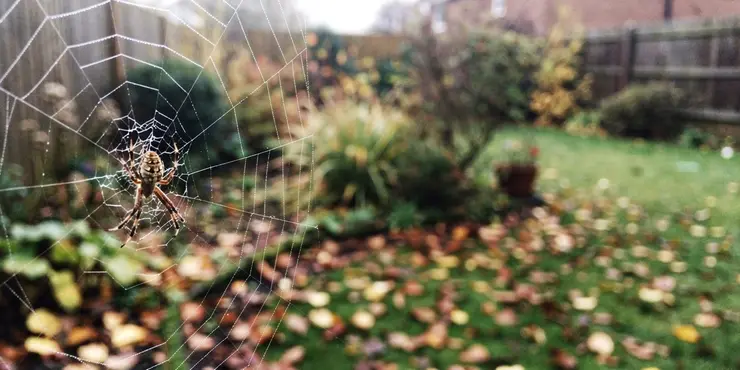
Are UK spiders venomous?
Relevance: 87%
-

Is the bite from a false widow spider dangerous?
Relevance: 86%
-

Are there any poisonous spiders in the UK?
Relevance: 84%
-

Are there non-venomous spiders in the UK?
Relevance: 84%
-

Do spiders in the UK carry diseases?
Relevance: 81%
-
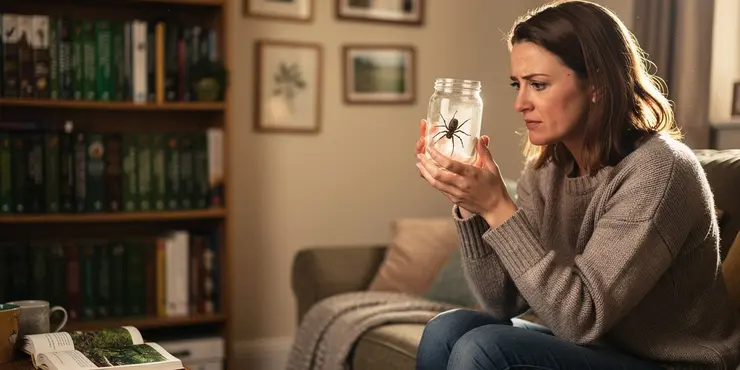
Can UK spiders cause allergic reactions?
Relevance: 79%
-
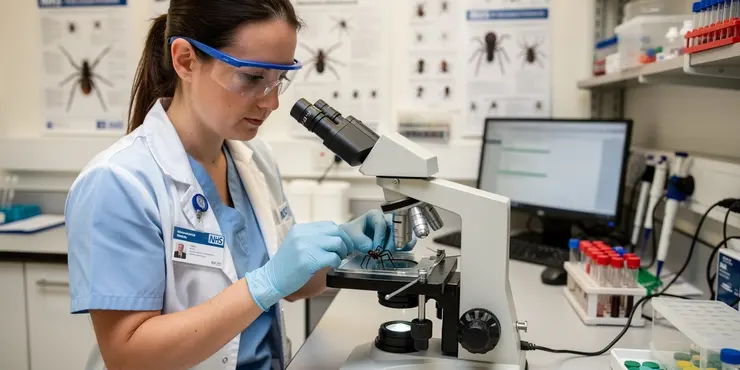
What is the most dangerous spider in the UK?
Relevance: 78%
-

What should I do if I get bitten by a spider in the UK?
Relevance: 78%
-
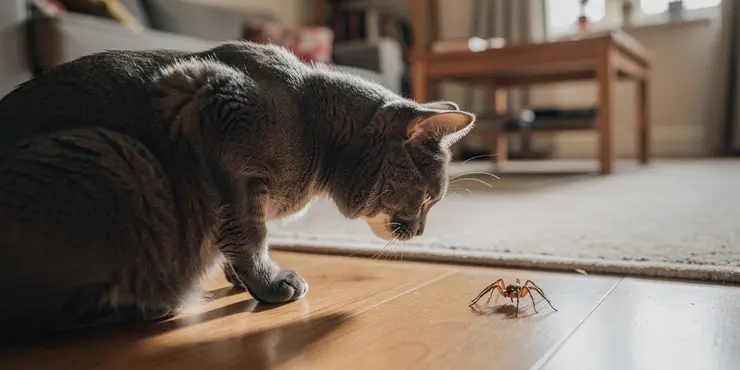
Do UK spiders pose a threat to pets?
Relevance: 78%
-

How common are spider bites in the UK?
Relevance: 75%
-

Can I keep a spider in the UK as a pet?
Relevance: 69%
-
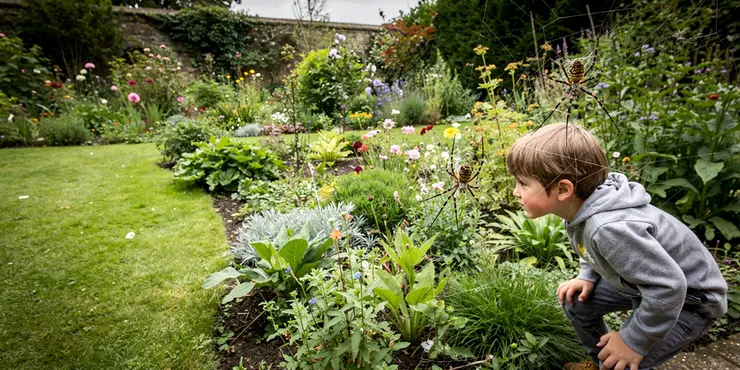
How big can spiders in the UK get?
Relevance: 62%
-

How can I identify a false widow spider?
Relevance: 59%
-

Are mosquito bites in the UK harmful?
Relevance: 57%
-

Think Pharmacy: Introduction for Bites and Stings
Relevance: 57%
-

What should I do if I find a spider in my home?
Relevance: 54%
-
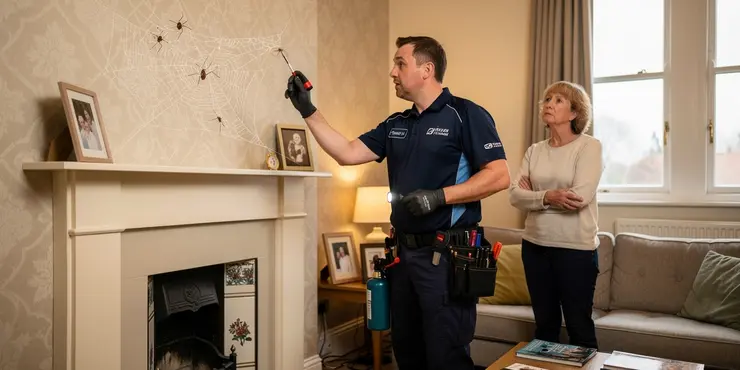
Is professional pest control needed for spiders?
Relevance: 53%
-

Why might there be more spiders in the home during autumn?
Relevance: 49%
-
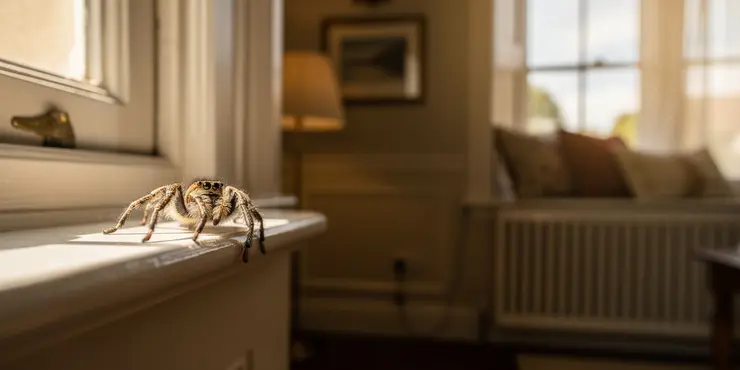
What are the benefits of having spiders in the home?
Relevance: 49%
-

Are there any precautions to take against spiders in the UK?
Relevance: 47%
-
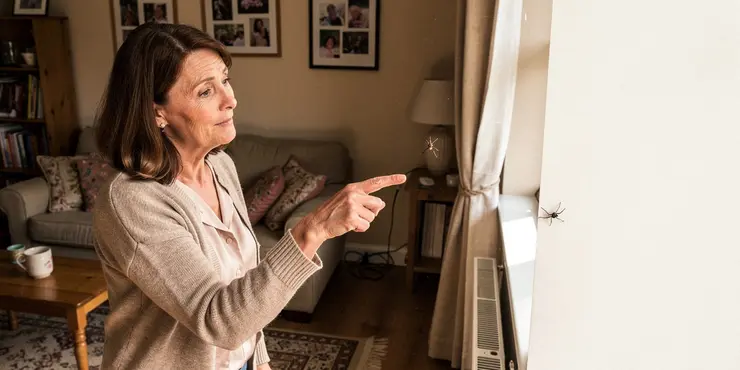
What types of spiders are commonly found in UK homes?
Relevance: 46%
-

How can I protect myself from mosquito bites in the UK?
Relevance: 46%
-
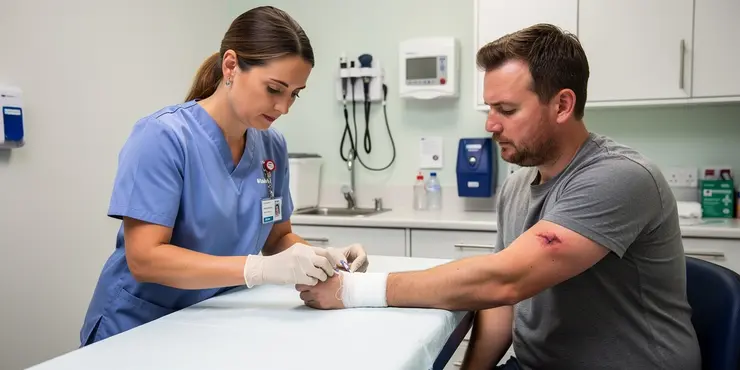
How to treat a dog bite
Relevance: 45%
-

Self care - insect bites
Relevance: 44%
-
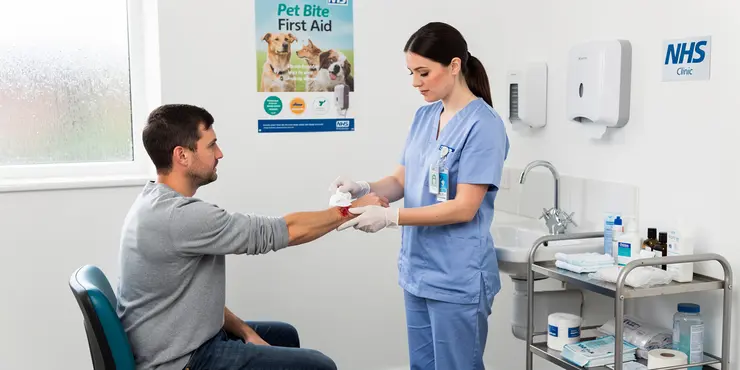
How to treat a cat bite
Relevance: 44%
-
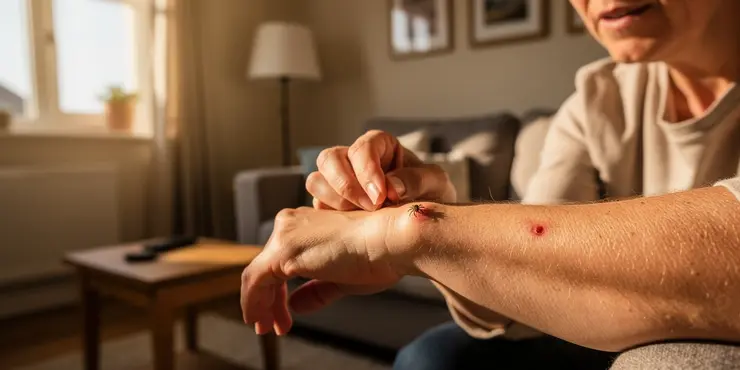
Tick Bites: Should you be worried?
Relevance: 43%
-

Why are mosquito bites itchy?
Relevance: 42%
-

How can I treat mosquito bites?
Relevance: 41%
-
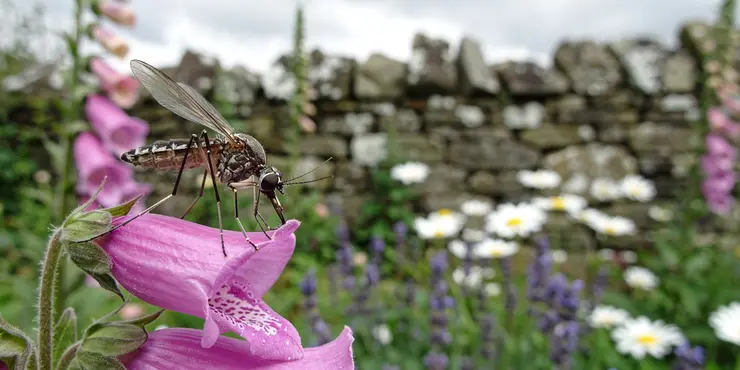
Do all mosquitoes bite humans?
Relevance: 41%
-

How to treat an insect bite or sting | NHS
Relevance: 39%
-

How can I tell if bites are from bed bugs?
Relevance: 38%
-

Can HIV be transmitted through insect bites?
Relevance: 37%
-

Are there any native mosquito predators in the UK?
Relevance: 30%
-

When are mosquitoes most active in the UK?
Relevance: 29%
-

What types of mosquitoes are found in the UK?
Relevance: 29%
-

Do UK mosquitoes carry diseases?
Relevance: 28%
-

Can mosquitoes in the UK enter houses?
Relevance: 28%
-

Is malaria spread by mosquitoes in the UK?
Relevance: 27%
-
Do all mosquitoes in the UK carry diseases?
Relevance: 26%
Introduction to Spider Bites in the UK
Spider bites are a concern for many, especially with the increasing fascination and fear surrounding exotic species. However, understanding the prevalence and actual risk of spider bites in the UK can help alleviate some of these concerns. While the UK is home to various spider species, significant bites are relatively uncommon.
Common Spider Species in the UK
The UK hosts a diverse range of spider species, with over 650 species recorded. The most commonly encountered spiders include the domestic house spider (Tegenaria species), the garden spider (Araneus diadematus), and the cellar spider (Pholcus phalangioides). Most of these spiders are harmless to humans and are more likely to flee than to bite.
Statistics on Spider Bites
Spider bites in the UK are rare due to the nature of native species. According to health reports, serious spider bites are reported only infrequently. While many people may experience a skin reaction to a bite, cases requiring medical treatment are rare. Health professionals often see spider bites confused with other insect bites or skin infections.
Notable Spider Species and Risks
Although the majority of British spiders are harmless, a few species have the potential to deliver a more painful bite. The most notable among these are the false widow spiders, particularly the noble false widow (Steatoda nobilis). Originating from Madeira and the Canary Islands, this spider has established a presence in southern parts of the UK. Its bite can cause mild discomfort, akin to a bee or wasp sting, but serious symptoms are uncommon and seldom require medical intervention.
Factors Contributing to Low Bite Incidences
Several factors contribute to the low incidence of spider bites in the UK. Firstly, the majority of spiders avoid human contact, preferring to stay hidden. Additionally, most species do not possess venom potency sufficient to harm humans. The UK's climate also does not support large populations of more venomous species, which prefer warmer environments.
What to Do if Bitten
If you suspect a spider bite, it is crucial to clean the area with soap and water to prevent infection. Applying a cold compress can help reduce any swelling or discomfort. Pain relief medication can be taken if needed. In the unlikely event that symptoms worsen or an allergic reaction occurs, seeking medical attention is advisable.
Conclusion
While many people express concern about spider bites, the risk in the UK remains minimal. Most native spiders are harmless, and incidents of significant bites are extremely rare. Understanding the types of spiders present in the UK and their behavior can help reduce unfounded fears, allowing people to coexist with these important ecological creatures safely.
Introduction to Spider Bites in the UK
Many people worry about spider bites, especially with new and scary spiders being talked about. But knowing how common spider bites are and the real risk in the UK can help make you feel better. There are many types of spiders in the UK, but bad bites are rare.
Common Spider Species in the UK
The UK has many kinds of spiders, with over 650 different types! The spiders you are most likely to see are the house spider, the garden spider, and the cellar spider. Most of these spiders are not dangerous to people and would rather run away than bite.
Statistics on Spider Bites
Spider bites in the UK are not common because of the kind of spiders we have here. Health reports say that serious spider bites are not often seen. Some people might get a little skin reaction from a bite, but needing a doctor is very rare. Sometimes people think spider bites are other kinds of bites or skin problems.
Notable Spider Species and Risks
Most spiders in the UK are safe, but a few can give a painful bite. An important one to know is the false widow spider, like the noble false widow. This spider came from other places like Madeira and now lives in the south of the UK. Its bite can feel like a bee or wasp sting, but it's usually not a big problem, and doctors don't normally need to help.
Factors Contributing to Low Bite Incidences
There are reasons why spider bites are not common in the UK. Most spiders do not like humans and hide away. Also, most don't have strong venom that can hurt people. The UK's cool weather also stops more dangerous spiders that like warm places.
What to Do if Bitten
If you think a spider bit you, clean the area with soap and water. This helps prevent infection. If the area is swollen, use a cold cloth to feel better. You can take pain medicine if needed. If the bite gets worse or you have an allergic reaction, see a doctor.
Conclusion
People worry about spider bites, but the risk in the UK is very low. Most UK spiders are safe, and bad bites are very rare. Learning about UK spiders and how they act can help stop the worry. We can live happily and safely with these important creatures.
Frequently Asked Questions
Useful Links
This website offers general information and is not a substitute for professional advice.
Always seek guidance from qualified professionals.
If you have any medical concerns or need urgent help, contact a healthcare professional or emergency services immediately.
Some of this content was generated with AI assistance. We’ve done our best to keep it accurate, helpful, and human-friendly.
- Ergsy carfully checks the information in the videos we provide here.
- Videos shown by Youtube after a video has completed, have NOT been reviewed by ERGSY.
- To view, click the arrow in centre of video.
- Most of the videos you find here will have subtitles and/or closed captions available.
- You may need to turn these on, and choose your preferred language.
- Go to the video you'd like to watch.
- If closed captions (CC) are available, settings will be visible on the bottom right of the video player.
- To turn on Captions, click settings .
- To turn off Captions, click settings again.
More Items From Ergsy search
-

Which spiders in the UK can bite humans?
Relevance: 100%
-

Are UK spiders venomous?
Relevance: 87%
-

Is the bite from a false widow spider dangerous?
Relevance: 86%
-

Are there any poisonous spiders in the UK?
Relevance: 84%
-

Are there non-venomous spiders in the UK?
Relevance: 84%
-

Do spiders in the UK carry diseases?
Relevance: 81%
-

Can UK spiders cause allergic reactions?
Relevance: 79%
-

What is the most dangerous spider in the UK?
Relevance: 78%
-

What should I do if I get bitten by a spider in the UK?
Relevance: 78%
-

Do UK spiders pose a threat to pets?
Relevance: 78%
-

How common are spider bites in the UK?
Relevance: 75%
-

Can I keep a spider in the UK as a pet?
Relevance: 69%
-

How big can spiders in the UK get?
Relevance: 62%
-

How can I identify a false widow spider?
Relevance: 59%
-

Are mosquito bites in the UK harmful?
Relevance: 57%
-

Think Pharmacy: Introduction for Bites and Stings
Relevance: 57%
-

What should I do if I find a spider in my home?
Relevance: 54%
-

Is professional pest control needed for spiders?
Relevance: 53%
-

Why might there be more spiders in the home during autumn?
Relevance: 49%
-

What are the benefits of having spiders in the home?
Relevance: 49%
-

Are there any precautions to take against spiders in the UK?
Relevance: 47%
-

What types of spiders are commonly found in UK homes?
Relevance: 46%
-

How can I protect myself from mosquito bites in the UK?
Relevance: 46%
-

How to treat a dog bite
Relevance: 45%
-

Self care - insect bites
Relevance: 44%
-

How to treat a cat bite
Relevance: 44%
-

Tick Bites: Should you be worried?
Relevance: 43%
-

Why are mosquito bites itchy?
Relevance: 42%
-

How can I treat mosquito bites?
Relevance: 41%
-

Do all mosquitoes bite humans?
Relevance: 41%
-

How to treat an insect bite or sting | NHS
Relevance: 39%
-

How can I tell if bites are from bed bugs?
Relevance: 38%
-

Can HIV be transmitted through insect bites?
Relevance: 37%
-

Are there any native mosquito predators in the UK?
Relevance: 30%
-

When are mosquitoes most active in the UK?
Relevance: 29%
-

What types of mosquitoes are found in the UK?
Relevance: 29%
-

Do UK mosquitoes carry diseases?
Relevance: 28%
-

Can mosquitoes in the UK enter houses?
Relevance: 28%
-

Is malaria spread by mosquitoes in the UK?
Relevance: 27%
-
Do all mosquitoes in the UK carry diseases?
Relevance: 26%


